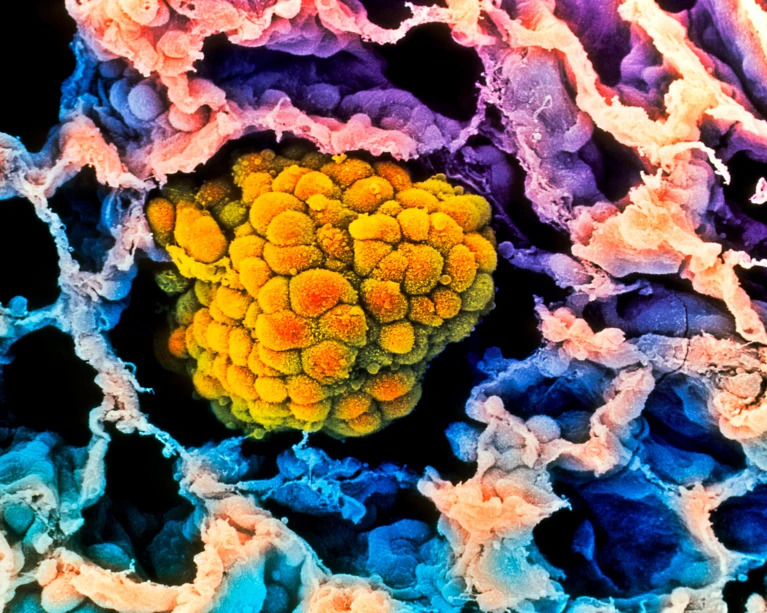"Informed AI News" is an publications aggregation platform, ensuring you only gain the most valuable information, to eliminate information asymmetry and break through the limits of information cocoons. Find out more >>
Aging May Lower Lung Cancer Risk: Insights from Mice Studies
- summary
- score

Two studies on mice reveal that older age reduces the risk of lung cancer. Published on bioRxiv, these findings link specific genes to iron metabolism, suggesting a protective mechanism in aging.
Cancer, typically rising with age, paradoxically decreases after peak years. Ana Gomes, a researcher, notes this long-observed trend without a clear explanation. DNA mutations accumulate over a lifetime, potentially fueling cancer, yet aging tissues may thwart tumor growth.
Emily Shuldiner's team at Stanford manipulated cancer-causing genes in mice. They found that younger mice developed larger, more frequent tumors than older ones, hinting at an age-related cancer suppression.
Xueqian Zhuang's group at Memorial Sloan Kettering discovered that aging boosts the NUPR1 protein in lungs, affecting iron levels. This protein makes cells act iron-deficient, slowing their growth—a trait of cancer cells. Inactivating NUPR1 in old mice increased their tumor risk, mirroring younger mice.
These studies, though focused on mice, suggest unexpected benefits of aging in cancer prevention. However, translating these findings to human cancers remains complex, given differences in tumor development and tissue-specific factors.
Overall, these insights challenge the notion that aging solely harms, potentially opening new paths in cancer treatment and highlighting the value of studying aging in cancer research.
| Scores | Value | Explanation |
|---|---|---|
| Objectivity | 6 | Comprehensive reporting with in-depth analysis. |
| Social Impact | 4 | Strong social discussion, influencing some public opinion. |
| Credibility | 5 | Solid evidence from authoritative sources. |
| Potential | 5 | Very high potential to trigger larger events. |
| Practicality | 4 | Highly practical, applicable to real problems. |
| Entertainment Value | 3 | Some entertainment value, attracts a portion of the audience. |